
Self (archive footage)
The panorama of human affairs encounters the “man with a movie camera”. His playground has no boundaries, his curiosity no limits. Characters, situations and places pitch camp in the life of a humanity that is at once the viewer and the thing viewed. But what are the last days of this humanity? Have they already passed? Are they now or still to come?

Story
Short film honoring Sergey Parajanov's Carmen puppets.

Writer
Three short films by Sergei Parajanov, Hakob Hovnatanyan (1967), Kyiv Frescoes (1966) and Arabesques on the Theme of Pirosmani (1986). Scanned and restored from the original camera negatives in 4K by Fixafilm. Produced in association with National Cinema Centre of Armenia (NCCA), Dovzhenko Centre and Georgian Film. Scans for Hakob Hovnatanyan and Arabesques on the Theme of Pirosmani financed by Kino Klassika.

Director
Three short films by Sergei Parajanov, Hakob Hovnatanyan (1967), Kyiv Frescoes (1966) and Arabesques on the Theme of Pirosmani (1986). Scanned and restored from the original camera negatives in 4K by Fixafilm. Produced in association with National Cinema Centre of Armenia (NCCA), Dovzhenko Centre and Georgian Film. Scans for Hakob Hovnatanyan and Arabesques on the Theme of Pirosmani financed by Kino Klassika.

Self (archival footage, voice)
Documentary about the life of Sergei Parajanov, a prominent Soviet-era filmmaker who was active in Ukraine, Georgia and Armenia and was persecuted by the communist government for his views on the pretext of his homosexuality, which was a crime in the USSR. The centerpiece of this documentary is Shadows of Forgotten Ancestors, a 1965 movie directed by Parajanov, that awakened the Ukrainian national consciousness which had been suppressed by decades of Soviet rule.

Himself
Sergei Paradjanov, the great Soviet filmmaker of Armenian origin who was born and grew up in Tbilisi, Georgia, studied film in Moscow and worked for many years in Ukraine, talks on camera to Fotos Lamprinos about his life, his films, and events in the USSR under Gorbachev’s Perestroika, a few short months before he died and while the state of his health was already deteriorating. The film includes rare footage of the massacre of Georgian civilians by the Soviet Army in April 1989 and unpublished material from the Ukrainian prison in which Paradjanov served his sentence.

Himsef (archival footage)
A short documentary by Levon Grigoryan about the making of Parajanov's «Sayat-Nova», or «The Colour of Pomegranates».

In Memory Of
A short documentary by Levon Grigoryan about the making of Parajanov's «Sayat-Nova», or «The Colour of Pomegranates».

Himself (archive footage)
Film devoted to director Sergei Parajanov. The film is designed as a confession of the director. There are pictures of various episodes of his life, while shooting, at his home, in prison... The commentary comes in the form of a monologue consisting of excerpts from letters, notes and scripts of his unfinished film The Confession.

himself
Roman Shyrman's documentary details the life and work of Sergei Paradjanov, who was no less vibrant and extravagant in everyday life than in his films. His personal life was itself a piece of art. This film is a tragicomic story about this great improviser and fantasist.

The art, destiny, and relationship of two geniuses of world cinema: Andrei Tarkovsky and Sergei Parajanov.

Interviewee
This documentary is not a straightforward portrait of Armenian film director Sergei Paradjanov's life, but rather a fluid celebration of his talent and creativity. Focusing on the collages he produced during his years in prison, and featuring interviews with the director himself, Cazals' film demonstrates the scope of Paradjanov's artistic vision, lovingly commemorating this rebel of art cinema.

Himself (archive footage)
“Drawing on archival footage, fragments of interviews, and scenes from his films, this newly constructed portrait of Sergey Paradjanov was composed by the highly accomplished Armenian director Don Askarian (Komitas, Avetik). According to the director's synopsis: "The year is 1989. The place is the film festival in Rotterdam. Farewell at the Hilton Hotel. And Paradjanov says, ‘Help me make Confession’. I answer, ‘As a child of two fathers, the film will be born a bastard’."

Himsef (archival footage)
An absorbing portrait of one of the most colorful and revered figures in world cinema, 'Paradjanov: A Requiem' offers an affectionate and insightful look at the tumultuous career of the late Sergei Paradjanov; artist, dissident, romantic and iconoclast.

Self (archival footage, voice)
In November 1988, director Anatoly Syrykh met with Sergei Parajanov in Tbilisi to make a documentary about him. However, Parajanov was clearly not in the mood to talk about his art. As a compromise, Syrykh offers to talk about the artist and time. The tired, offended director of "Shadows of Forgotten Ancestors" forbids Syrykh to film him. He agrees only to speak, recalling the most unpleasant moments of his life.

Screenplay
Made in wartime and edited in candlelight, Mikhail Vartanov's rarely-seen masterpiece tells about his friendship with the genius Sergei Parajanov who was imprisoned by KGB "at the peak of his artistic power". Vartanov takes us back with the scenes from his censored 1969 film The Color of Armenian Land where Paradjanov is at work on his suppressed chef-d'oeuvre The Color of Pomegranates - widely regarded as one of the greatest films of all time - and contrasts it with the shocking request Parajanov sent him in unpublished 1974 letters from the Soviet prisons. Vartanov's camera documents Parajanov's striking last day at work in 1990 during the making of the unfinished Confession. A monumental wordless montage - the entire sixth reel - concludes Vartanov's acclaimed documentary, which, despite the prohibitive conditions it was created in, won the admiration of many of cinema's greatest artists, including Francis Ford Coppola and Martin Scorsese.

Himself
Made in wartime and edited in candlelight, Mikhail Vartanov's rarely-seen masterpiece tells about his friendship with the genius Sergei Parajanov who was imprisoned by KGB "at the peak of his artistic power". Vartanov takes us back with the scenes from his censored 1969 film The Color of Armenian Land where Paradjanov is at work on his suppressed chef-d'oeuvre The Color of Pomegranates - widely regarded as one of the greatest films of all time - and contrasts it with the shocking request Parajanov sent him in unpublished 1974 letters from the Soviet prisons. Vartanov's camera documents Parajanov's striking last day at work in 1990 during the making of the unfinished Confession. A monumental wordless montage - the entire sixth reel - concludes Vartanov's acclaimed documentary, which, despite the prohibitive conditions it was created in, won the admiration of many of cinema's greatest artists, including Francis Ford Coppola and Martin Scorsese.

Director
Made in wartime and edited in candlelight, Mikhail Vartanov's rarely-seen masterpiece tells about his friendship with the genius Sergei Parajanov who was imprisoned by KGB "at the peak of his artistic power". Vartanov takes us back with the scenes from his censored 1969 film The Color of Armenian Land where Paradjanov is at work on his suppressed chef-d'oeuvre The Color of Pomegranates - widely regarded as one of the greatest films of all time - and contrasts it with the shocking request Parajanov sent him in unpublished 1974 letters from the Soviet prisons. Vartanov's camera documents Parajanov's striking last day at work in 1990 during the making of the unfinished Confession. A monumental wordless montage - the entire sixth reel - concludes Vartanov's acclaimed documentary, which, despite the prohibitive conditions it was created in, won the admiration of many of cinema's greatest artists, including Francis Ford Coppola and Martin Scorsese.

Himself

Himself
Documentary made and dedicated to Sergei Parajanov shortly after his death, featuring archive photographs, his collages, and clips from several of his films.

Screenplay
The Confession (1990) survives in Parajanov: The Last Spring (1992) in its original camera negative. It remained unfinished due to the death of Sergei Parajanov. The Confession (1990) was his favorite screenplay, which was written in the 1960s and was his film-memory of the childhood, student years, marriage, imprisonment and more as the fantasist Parajanov perceived it. Parajanov gifted the screenplay to Mikhail Vartanov, made a drawing on the cover and wrote: "The Confession will only be made by a director born in 1924 in Tiflis, Georgia." He predicted that he would not finish it.

Director
The Confession (1990) survives in Parajanov: The Last Spring (1992) in its original camera negative. It remained unfinished due to the death of Sergei Parajanov. The Confession (1990) was his favorite screenplay, which was written in the 1960s and was his film-memory of the childhood, student years, marriage, imprisonment and more as the fantasist Parajanov perceived it. Parajanov gifted the screenplay to Mikhail Vartanov, made a drawing on the cover and wrote: "The Confession will only be made by a director born in 1924 in Tiflis, Georgia." He predicted that he would not finish it.
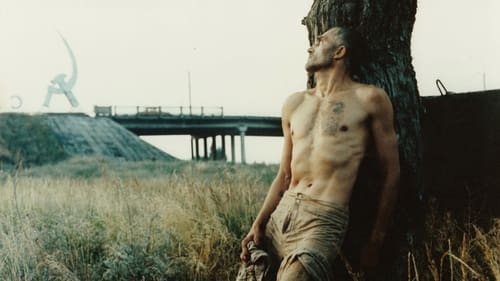
Writer
A convict is forced to hide within a model of a hammer and sickle. Here a tragic romance ensues between the convict and woman worker; which is spoilt by the woman's jealous young son. The convict is then forced to undergo a tragic bid for freedom which ends with the beauty of swans contrasted with the imprisoned convicts and the hopeful but ultimately tragic wait by the woman for her lover.

Screenplay
Film about the painter Mikhail Vrubel's years in Kyiv, from a Sergei Parajanov script.

Cinéaste
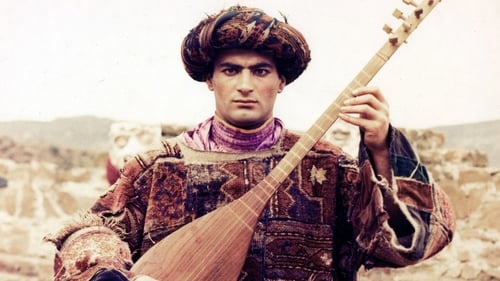
Production Design
Wandering minstrel Ashik Kerib falls in love with a rich merchant's daughter, but is spurned by her father and forced to roam the world for a thousand and one nights. Now presumed dead by those he loves, he performs for the poor and unfortunate on his journeys through the wilderness. Parajanov's visually ravishing 'tableaux vivants' tell Lermontov's romantic tale while Turkish and Azerbaijani folk songs transport us into its mystical landscapes.

Director
Wandering minstrel Ashik Kerib falls in love with a rich merchant's daughter, but is spurned by her father and forced to roam the world for a thousand and one nights. Now presumed dead by those he loves, he performs for the poor and unfortunate on his journeys through the wilderness. Parajanov's visually ravishing 'tableaux vivants' tell Lermontov's romantic tale while Turkish and Azerbaijani folk songs transport us into its mystical landscapes.
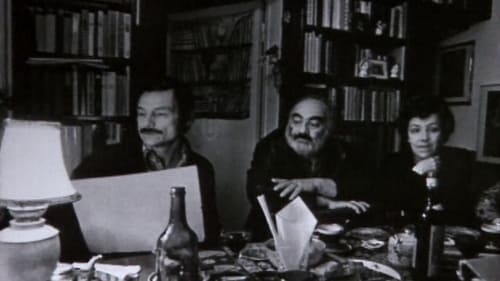
Himself (archive footage)
A bunch of stories, portraits and images about people of amazing destinies, including Parajanov and Tarkovsky, merging into a non-traditional and polemic image of Armenia.
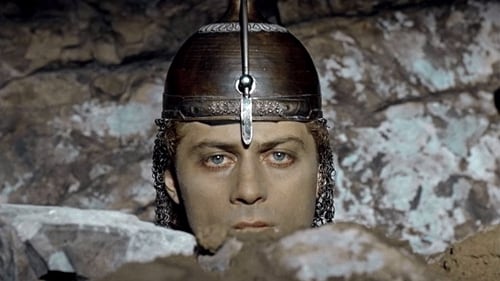
Director
A film version of a well-known Georgian folk-tale. A young boy has to be immured into the walls of a fortress in order to stop it from crumbling to pieces.

Screenplay
Short film from Sergei Parajanov, a personal view of the director on the spectacular heritage of Niko Pirosmani (1862–1918), a Georgian primitivist painter.

Director
Short film from Sergei Parajanov, a personal view of the director on the spectacular heritage of Niko Pirosmani (1862–1918), a Georgian primitivist painter.

Producer
Documentary short.

Writer
Documentary short.

Self
Documentary short.

Director
Documentary short.
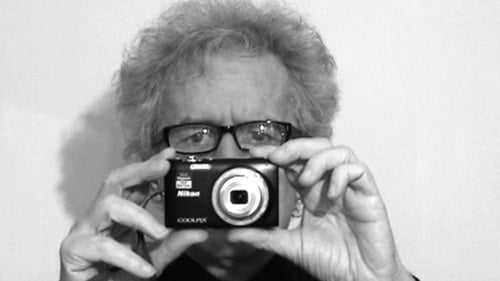
N°1083
Cinématon is a 156-hour long experimental film by French director Gérard Courant. It was the longest film ever released until 2011. Composed over 36 years from 1978 until 2006, it consists of a series of over 2,821 silent vignettes (cinématons), each 3 minutes and 25 seconds long, of various celebrities, artists, journalists and friends of the director, each doing whatever they want for the allotted time. Subjects of the film include directors Barbet Schroeder, Nagisa Oshima, Volker Schlöndorff, Ken Loach, Benjamin Cuq, Youssef Chahine, Wim Wenders, Joseph Losey, Jean-Luc Godard, Samuel Fuller and Terry Gilliam, chess grandmaster Joël Lautier, and actors Roberto Benigni, Stéphane Audran, Julie Delpy and Lesley Chatterley. Gilliam is featured eating a 100-franc note, while Fuller smokes a cigar. Courant's favourite subject was a 7-month-old baby. The film was screened in its then-entirety in Avignon in November 2009 and was screened in Redondo Beach, CA on April 9, 2010.

Himself
In his wordless debut film, Mikhail Vartanov presents the ancient and modern art of Armenia through the post-impressionist painter Martiros Saryan’s silent commentary of gestures. Biblical landscapes, the ruins of temples, frescos, cross-stones, contemporary sculptures of Tchakmakchian (Chakmakchyan), the first appearance on film of iconic modernist painter Minas and his paintings, as well as the world famous behind-the-scenes episodes of Sergei Parajanov’s landmark "The Color of Pomegranates (Sayat Nova)." The film had its first public screening at one of the world’s largest and prestigious cinematic events, the Busan International Film Festival, 43 years after it was made.
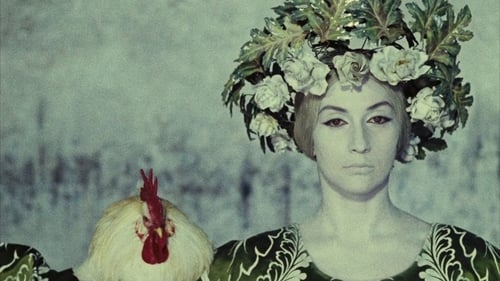
Editor
Biografia estilizada do poeta e trovador Sayat Nova do século 18. Descreve a vida do poeta em oito seções, da infância à morte, rica em seus simbolismos sacros e seculares.

Writer
Biografia estilizada do poeta e trovador Sayat Nova do século 18. Descreve a vida do poeta em oito seções, da infância à morte, rica em seus simbolismos sacros e seculares.

Director
Biografia estilizada do poeta e trovador Sayat Nova do século 18. Descreve a vida do poeta em oito seções, da infância à morte, rica em seus simbolismos sacros e seculares.

Writer
Exploring the art of Armenian portraitist Hakob Hovnatanyan, Parajanov revives the culture of Tbilisi of the 19th century.

Director
Exploring the art of Armenian portraitist Hakob Hovnatanyan, Parajanov revives the culture of Tbilisi of the 19th century.
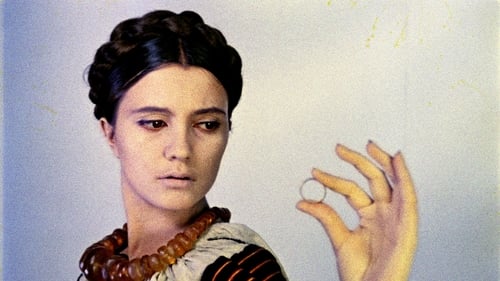
Director
Parajanov's collage of all the footage that remained from his film "Kyiv Frescoes," which was halted by the authorities who demanded that all the negatives be destroyed.
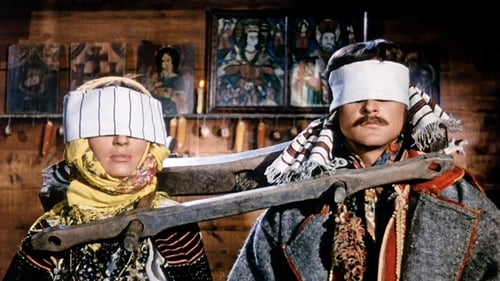
Writer
Também conhecido como "Sombras dos Ancestrais Esquecidos", o filme mais célebre de Sergei Paradjanov conta a história dos amores contrariados de dois jovens de famílias rivais, que acabam por se reunir na morte. Mas dizer que este filme louco e poético "conta uma história" é limitar o seu alcance. Inspirando-se em lendas ucranianas, Paradjanov também se inspirou nas ricas tradições folclóricas da região, na música, nas cores, nos ritos. Em perpétuo movimento, o filme é um prodigioso emaranhado de imagens de grande beleza, que contam em filigrana a história dos amores infelizes dos protagonistas.

Director
Também conhecido como "Sombras dos Ancestrais Esquecidos", o filme mais célebre de Sergei Paradjanov conta a história dos amores contrariados de dois jovens de famílias rivais, que acabam por se reunir na morte. Mas dizer que este filme louco e poético "conta uma história" é limitar o seu alcance. Inspirando-se em lendas ucranianas, Paradjanov também se inspirou nas ricas tradições folclóricas da região, na música, nas cores, nos ritos. Em perpétuo movimento, o filme é um prodigioso emaranhado de imagens de grande beleza, que contam em filigrana a história dos amores infelizes dos protagonistas.

Director
Set in a new mining town in the Donets Coal Basin, it centres on a clash between the young miners, the political establishment, and a religious cult lead by a devious Pentecostal evangelist infiltrated into the community who tries to make the workers fall under his influence.

Director
Singer Oksana has lost her beloved in the war. Everyone thinks he perished, but actually he was taken prisoner, then ran away, hid, fell into American hands, and… Finally, he returns to his village, and meets Oksana. —Yerevan International Film Festival

Director
A documentary portrait of prominent Ukrainian stage and screen actress Natalya Ushviy that contains numerous excerpts from her feature films.

Director
A gem from Paradjanov's early oeuvre is a musical agitation film or a romantic comedy, made by the young director under the guidance of Alexander Dovzhenko and set in the immense fields of the collectivised Ukraine. The social realism is replaced by colourful, convivial and dancing shots of the “Pabieda” (Victory) kolkhoz, where peasant women sing in the fields, and boys march with banners glorifying revolution. Against this backdrop, intense romantic feelings have reached a climactic stage; tailor Sidor Sidorovich, farmer Jushka and soldier Danila Petrovich all dote on the fair-haired Odarka. It is Jushka and Danila who engage in overt hostility; the initial “gentlemen’s” contest turns into an outright confrontation, resulting in miserable Jushka being increasingly more desperate and scorned by the villagers.

Director
Parajanov's documentary about Ukrainian art.

Director
Documentary showcasing popular and folk songs performed by the Ukrainian State Choir.

Director
An adaptation of a fairy tale by Moldovan writer Emilian Bukov.

Director
A short film was created in the USSR in 1951, directed by Sergei Parajanov, Yakov Bazelyan. The leading roles were played by Konstantin Russu, K. Stirbu, Lyudmila Sokolova and others. The duration of the film is 48 min.













